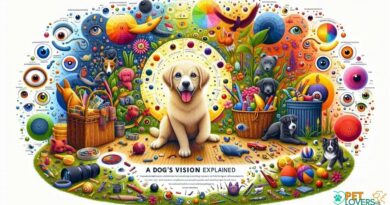What is environmental dog concerns
What Are Environmental Dog Concerns?
Environmental dog concerns refer to the various issues that arise from the interaction between dogs and their surroundings. These concerns can encompass a wide range of topics, including pollution, habitat destruction, and the impact of dog waste on local ecosystems. Understanding these issues is crucial for dog owners who want to minimize their pets’ environmental footprint while ensuring a healthy and sustainable living environment.
The Impact of Dog Waste on the Environment
One of the most significant environmental concerns related to dogs is the management of dog waste. When left on the ground, dog feces can contribute to water pollution, as rain can wash harmful bacteria and parasites into local waterways. This not only affects water quality but can also harm aquatic life. Responsible pet ownership includes picking up after your dog and disposing of waste properly to mitigate these environmental impacts.
Pollution from Dog Products
Many dog products, from toys to grooming supplies, can contribute to environmental pollution. Items made from non-biodegradable materials can end up in landfills, where they take years to decompose. Additionally, chemicals found in some dog shampoos and cleaning products can leach into the soil and water systems, posing risks to both wildlife and human health. Choosing eco-friendly products can help reduce this pollution.
Habitat Destruction and Wildlife Disruption
Dogs, especially when not kept on leashes, can disrupt local wildlife and contribute to habitat destruction. They may chase or harm native species, leading to declines in local populations. Furthermore, the expansion of dog parks and walking trails can encroach on natural habitats, further threatening the delicate balance of local ecosystems. It’s essential for dog owners to be aware of their pets’ behaviors and the potential consequences for wildlife.
Invasive Species and Dogs
Dogs can inadvertently contribute to the spread of invasive species. For example, seeds from invasive plants can cling to a dog’s fur and be transported to new areas, where they can outcompete native flora. Additionally, dogs may dig or disturb soil, creating opportunities for invasive species to establish themselves. Responsible pet ownership includes keeping dogs away from sensitive areas and being vigilant about their impact on the environment.
Climate Change and Dog Ownership
Climate change is an overarching environmental concern that affects all living beings, including dogs. As temperatures rise, the risk of heat-related illnesses in dogs increases, necessitating changes in how we care for them. Furthermore, climate change can alter the availability of resources such as food and water, impacting both dogs and their owners. Being mindful of our pets’ needs in the context of a changing climate is essential for their well-being.
Promoting Sustainable Practices in Dog Care
To address environmental dog concerns, dog owners can adopt sustainable practices in their pet care routines. This includes using biodegradable waste bags, choosing eco-friendly dog food, and supporting brands that prioritize sustainability. Additionally, participating in local clean-up efforts and advocating for dog-friendly policies that protect the environment can make a significant difference in reducing the ecological impact of dog ownership.
Community Involvement and Education
Community involvement plays a crucial role in addressing environmental dog concerns. Educating fellow dog owners about the importance of responsible pet ownership and its impact on the environment can foster a culture of sustainability. Local organizations can host workshops, clean-up events, and awareness campaigns to engage the community in protecting the environment while enjoying the companionship of dogs.
The Role of Veterinary Care in Environmental Concerns
Veterinary care also intersects with environmental dog concerns. Regular check-ups can help ensure that dogs are healthy and not carrying parasites that could harm local wildlife. Additionally, veterinarians can provide guidance on eco-friendly pet care practices, such as spaying and neutering to control the dog population and reduce the strain on local resources. Responsible veterinary care is an integral part of minimizing the environmental impact of dog ownership.



